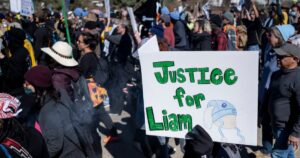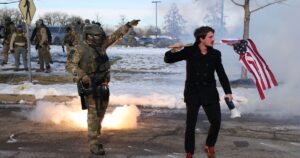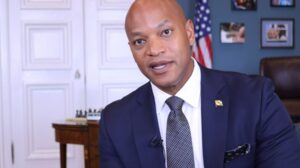Politics
Supreme Court grants Virginia’s appeal to purge voter rolls ahead of Election Day
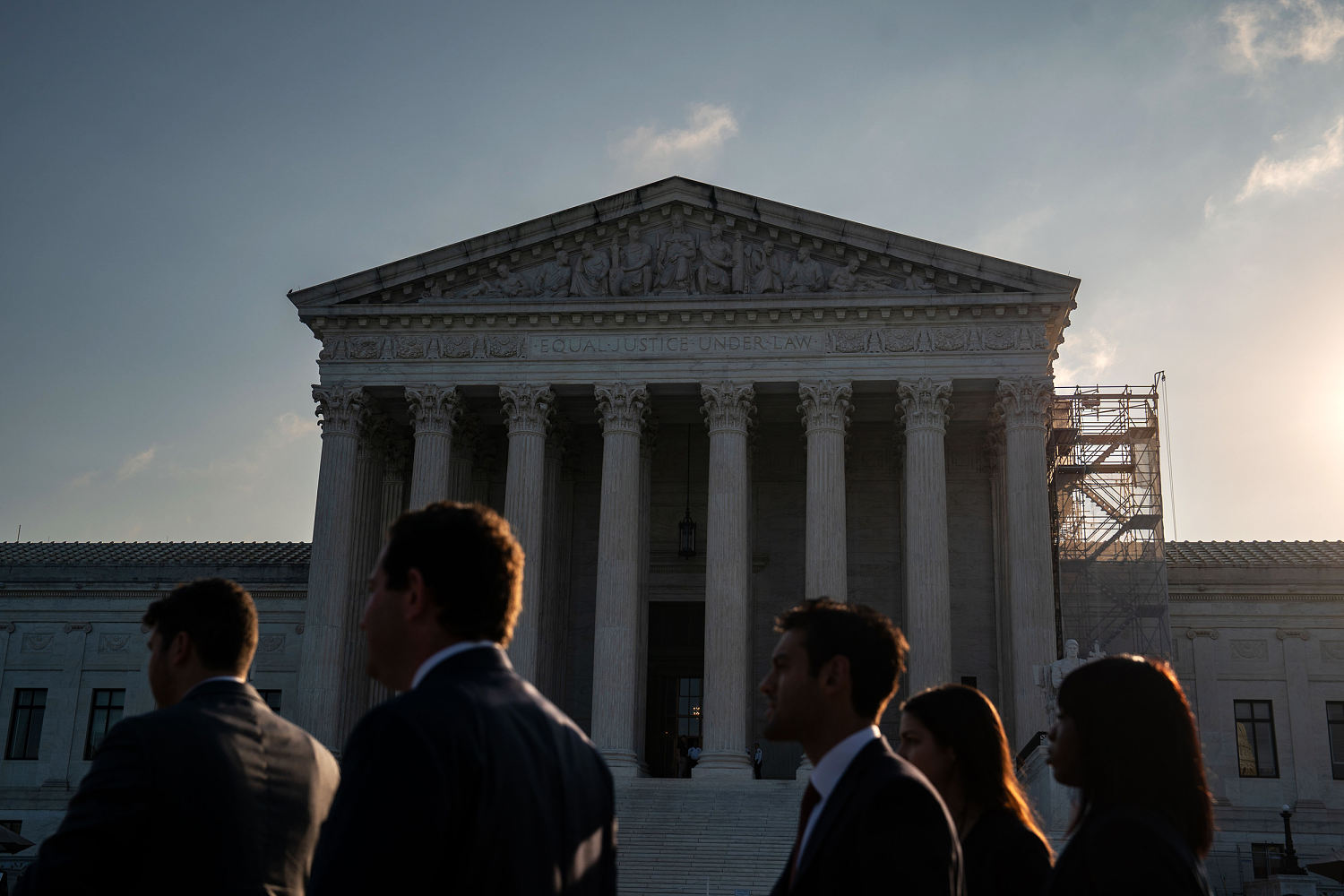
The Supreme Court on Wednesday granted Virginia’s emergency request to revive Republican Gov. Glenn Youngkin’s systematic purge of voter rolls ahead of Election Day.
The court’s three Democratic appointees dissented from the order. The Republican-appointed majority didn’t explain its reasoning, nor did the dissenters, which isn’t unusual in emergency litigation.
The Republican win from the Roberts Court follows Tuesday’s nearly unanimous rejection of former independent candidate Robert F. Kennedy Jr.’s attempt to get off ballots in battleground states Wisconsin and Michigan, which he wanted to do to help Republican Donald Trump’s campaign.
The justices are also expected to rule soon on an emergency bid from Republicans to block provisional ballots in Pennsylvania. The impending decision in the case from that swing state could provide a fuller picture of how the court is handling litigation in this election, which could be a close one between Trump and Democratic nominee Kamala Harris.
A federal judge on Friday had blocked Virginia’s program, citing the National Voter Registration Act. That federal law bars states from systematically removing ineligible voters within 90 days of a federal election. Virginia argued to the justices that the law doesn’t apply to removing noncitizens and that its removal process is individualized, not systematic.
Opposing the emergency bid alongside voting rights groups, the federal government said that Virginia has “no legitimate interest in continuing practices that plainly violated federal law.” The government said that state officials “pervasively invoke alleged harms that they have failed to prove. … Notably, applicants have provided no reason to believe that any noncitizens have voted in past Virginia elections, or that any are likely to do so in the upcoming election.”
In ruling against the state, U.S. District Judge Patricia Giles said that its program has curtailed the rights of eligible voters to cast their ballots, citing evidence that eligible citizens have had their registrations canceled. The Joe Biden appointee said that “restoring the right to vote of all eligible voters affected by this program strongly outweighs the burden to Defendants [Virginia] of restoring those names to the rolls.”
She added that officials could still remove ineligible registrants through individualized inquiry.
On Sunday, a 4th U.S. Circuit Court of Appeals panel said it was likewise “unpersuaded” by the state’s argument that it wasn’t violating the federal voter registration law. “Here, the challenged program does not require communication with or particularized investigation into any specific individual,” a unanimous appeals court panel said in the order that prompted Supreme Court review. “Rather, the inclusion of a person’s name on a list electronically compared to other agency databases is enough for removal from the voter rolls.”
The panel of Democratic appointees said the state’s argument that the law doesn’t cover noncitizens “violates basic principles of statutory construction by focusing on a differently worded statutory provision that is not at issue here and proposing a strained reading of the Quiet Period Provision to avoid rendering that other provision absurd or unconstitutional. That is not how courts interpret statutes.”
The Supreme Court’s order on Wednesday pauses the trial judge’s ruling pending further litigation in the appeals court and potentially the high court.
In the 2020 election that Trump lost to Biden, the Democrat won Virginia, where early voting is already underway this year, by about half a million votes.
While this appeal only concerned Virginia, the state was backed at the high court by Republican interests and states, including a brief led by Kansas Attorney General Kris Kobach, who was previously held in contempt and sanctioned for defying court orders during voting litigation.
Subscribe to the Deadline: Legal Newsletter for expert analysis on the top legal stories of the week, including updates from the Supreme Court and developments in Donald Trump’s legal cases.
Jordan Rubin is the Deadline: Legal Blog writer. He was a prosecutor for the New York County District Attorney’s Office in Manhattan and is the author of “Bizarro,” a book about the secret war on synthetic drugs. Before he joined BLN, he was a legal reporter for Bloomberg Law.
Politics
Trump endorses John E. Sununu in New Hampshire Senate race over Scott Brown
President Donald Trump on Sunday endorsed former Sen. John E. Sununu in New Hampshire’s open Senate race, boosting a longtime critic over one of his former ambassadors, Scott Brown.
Trump hailed Sununu, who Republicans see as their best chance to flip the blue Senate seat, as an “America First Patriot” in a Truth Social post Sunday afternoon. And Trump said Sununu will “work tirelessly to advance our America First Agenda.”
“John E. Sununu has my Complete and Total Endorsement — HE WILL NOT LET YOU DOWN. MAKE AMERICA GREAT AGAIN — ELECT JOHN E. SUNUNU,” he posted.
Sununu, a moderate who has opposed Trump across his presidential runs, thanked him in a statement and quickly pivoted to talking about his priorities for New Hampshire.
“I want to thank the President for his support and thank the thousands of Granite Staters who are supporting me,” Sununu said. “This campaign has and always will be about standing up for New Hampshire — every single day.”
Trump’s endorsement further tips the scales in an already pitched GOP primary between Sununu and Brown, who represented Massachusetts in the Senate before moving to New Hampshire and running unsuccessfully for Senate there in 2014. He served as Trump’s ambassador to New Zealand and Samoa in his first term, and has been presenting himself as the more Trump-aligned candidate as he courts the MAGA base.
Brown vowed to fight on. And he took a veiled shot at Sununu, accusing him of not being sufficiently dedicated to the MAGA movement.
“I am running to ensure our America First agenda is led by someone who views this mission not as a career path, but as a continuation of a lifelong commitment to service,” Brown said in a post on X. “Let’s keep working.”
The two are competing to take on Democratic Rep. Chris Pappas for the seat being vacated by retiring Democratic Sen. Jeanne Shaheen. Pappas issued a simple response to Trump’s endorsement of Sununu: “I’m Chris Pappas, and I approve this message,” he wrote on X. His campaign manager, Rachel Pretti, said in a statement that Trump’s endorsement “confirms” that Sununu “will sell out Granite Staters to advance his political career.”
Trump’s support for Sununu once would have seemed unfathomable. The scion of a moderate New Hampshire Republican dynasty, Sununu served as a national co-chair of former Ohio Gov. John Kasich’s 2016 presidential campaign and joined his family in backing former U.N. Ambassador Nikki Haley for president against Trump in the 2024 GOP primary.
Ahead of New Hampshire’s 2024 presidential primary, Sununu penned an op-ed lambasting Trump as a “loser.” (Trump went on to win by 11 points). And he later derided Trump’s 2020 election conspiracies as “completely inappropriate.”
Republicans initially were bullish about flipping an open seat in purple New Hampshire that’s already changed hands between parties twice this century — Sununu defeated Shaheen to win the seat in 2002, then lost it to her in 2008 — and coalesced quickly behind the moderate Republican as their best option against Pappas. Sununu received instant backing from the GOP’s Senate campaign arm upon his launch last October and has wracked up endorsements from the majority of Republican senators. He’s also won support from Republican leaders in New Hampshire — all of which Trump noted in his Truth Social post Sunday.
Trump also initially supported Sununu’s younger brother, former Gov. Chris Sununu, running for the Senate seat. Chris Sununu, also a vocal Trump critic, declined to launch a bid, prompting GOP interest in his brother.
But some in Trump’s Granite State MAGA base quickly rejected his endorsement of Sununu, calling it a “slap in the face to grassroots supporters” long loyal to the president.
“The Sununu family openly mocked, degraded, and worked against the America First movement, the President himself, and the policies that energized New Hampshire voters,” a group of MAGA activists wrote on X. “We will continue and intensify our campaign opposition to the Sununu operation.”
Sununu holds a wide lead over Brown in polling of the GOP primary. The latest, a University of New Hampshire online survey of likely primary voters from mid-January, showed Sununu up 48 percent to 25 percent with 26 percent of likely voters undecided. But Pappas is ahead of both Republicans in hypothetical general-election matchups, leading Sununu by 5 percentage points and Brown by 10 percentage points in the UNH poll. The survey of 967 likely GOP primary voters had a margin of error of +/-3.2 percent.
Pappas also outraised both Republicans, bringing in $2.3 million last quarter and amassing a $3.2 million war chest heading into the year. Sununu hauled in $1.3 million and had $1.1 million in cash on hand in his primary campaign account while Brown raised $347,000 through his main account and had $907,000 in the bank.
Politics
Trump questions if GOP can overcome voters’ ‘psychological’ midterms hurdle
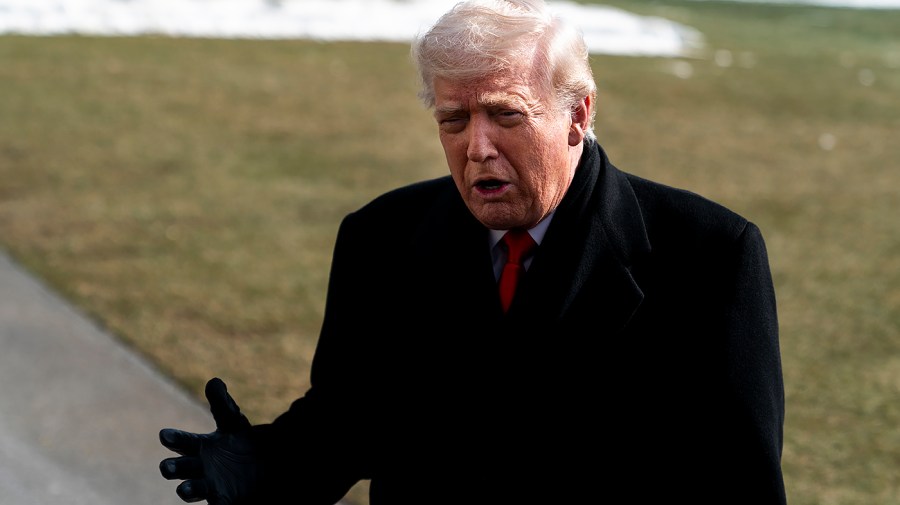
President Trump is warning of a possible Democratic victory in November’s midterm elections, seemingly lowering expectations for Republican wins well ahead of any voters heading to the ballot box. Trump regularly notes that the party in control of the White House historically tends to lose the midterms…
Read More
Politics
Caught between ICE enforcement and fraud allegations, child care industry gasps for air

The child care industry is struggling to convince parents that its facilities are safe. Providers are in a tough spot after months of immigration operations that have included parents taken in by authorities while dropping off or picking up their kids — as well as fraud allegations that have led to harassment at facilities around the country…
Read More
-

 The Dictatorship12 months ago
The Dictatorship12 months agoLuigi Mangione acknowledges public support in first official statement since arrest
-

 Politics12 months ago
Politics12 months agoFormer ‘Squad’ members launching ‘Bowman and Bush’ YouTube show
-

 The Dictatorship5 months ago
The Dictatorship5 months agoMike Johnson sums up the GOP’s arrogant position on military occupation with two words
-

 Politics12 months ago
Politics12 months agoBlue Light News’s Editorial Director Ryan Hutchins speaks at Blue Light News’s 2025 Governors Summit
-

 The Dictatorship12 months ago
The Dictatorship12 months agoPete Hegseth’s tenure at the Pentagon goes from bad to worse
-

 Politics12 months ago
Politics12 months agoFormer Kentucky AG Daniel Cameron launches Senate bid
-
Uncategorized1 year ago
Bob Good to step down as Freedom Caucus chair this week
-

 Politics10 months ago
Politics10 months agoDemocrat challenging Joni Ernst: I want to ‘tear down’ party, ‘build it back up’





